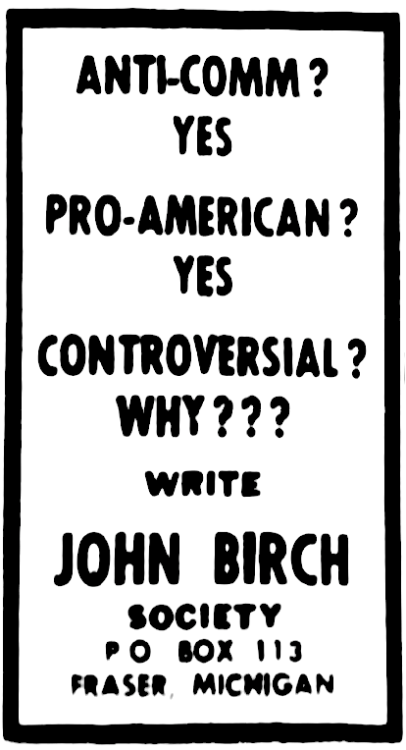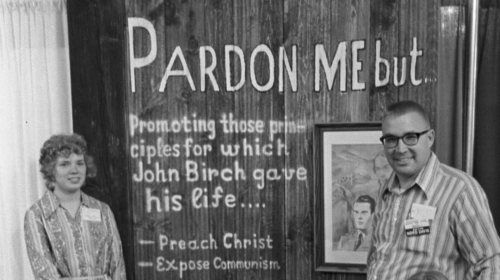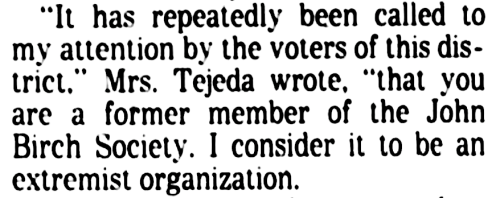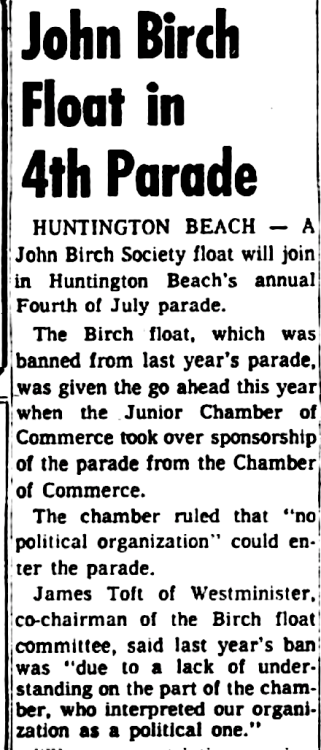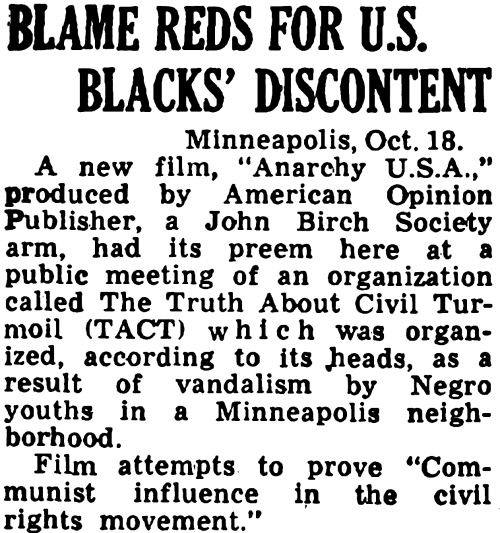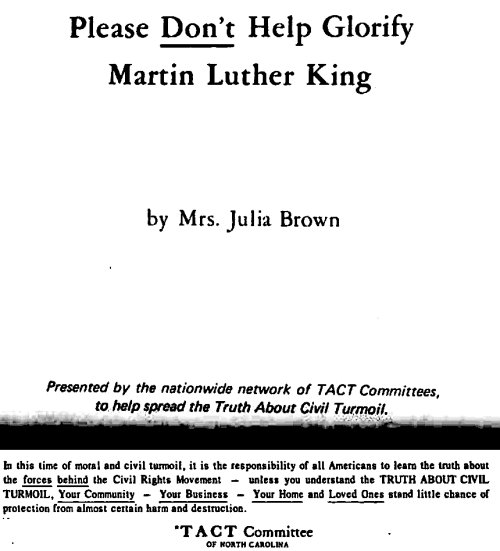#historical context
Here’s a short film I produced, looking at the historical context of Emil and the Detectives and featuring some very interesting interviews.
Playwright Carl Miller and children’s authors Philip Pullman and Michael Rosen reflect on Erich Kästner and the historical context in which Emil and the Detectives was created and published, in the midst of great cultural and political change in Germany.
why are people still doing the whole “well these asian people from this asian country arent offended by [racist thing] so you, an asian american, shouldnt be offended” like maybe, perhaps, mayhaps, people experience racism differently and in different contexts when they, idk, live in different fucking countries
Take note
in the wake of dracula daily and subsequent ongoing discussions of the antisemitism that drives the book, i thought i’d throw together a verybrief primer based on little strands of research i’ve done in the past around some of the history that scaffolds dracula.i’m not trying to scold people for participating in the more lighthearted end of this cultural moment – i love dracula,i’m also reading dracula daily and enjoying everyone’s little jokes about jonathan harker and his paprika and so on – but i amtrying to provide what i hope is a somewhat useful resource for deeper engagement with the text, a necessary critical skill if you want to have anything meaningful to say about it. i’m not really interested in coddling people’s feelings about antisemitism, and i think it’s in everyone’s best interests to provide a little bit of a framework for how we approach and think about and talk about what is a pretty unambiguously bigoted book.
for what it’s worth, i find the most productive way to approach this text, as with any text that emerges from a tradition of immense violence (ie. pretty much any work of english literature from the nineteenth century, all of which write from the heartlands of imperialist plunder and the formation of nationalist cultural norms) is as a historical document. there’s a difference in these discourses between a piece that’s made today, where we might ask whywe’ve allowed particular cultural conditions to facilitate the telling of narratives that are attempting to naturalise conditions of bigotry, and one created in 1897, where our relationship to that historical moment should be one of self-reflection and analysis with an eye to informing our understanding of present-day violences. my point is that a text which locates itself within the british antisemitism of the late nineteenth century is one which can enhance our understanding of that antisemitism and its present-day legacy.
i also want to clarify that i don’t intend to reduce the bigotry of draculatojustthe antisemitism – it is clearly shaped by broader strokes around racism and imperialist race science in particular, but the specific british-jewish cultural history within which it is grounded happens to be the one that i have a relatively coherent understanding of, and wanted to share. i don’t at all intend to frame this as a complete account – i’m more just putting what i have to hand out into the world for others to do with what they will and ultimately come to their own conclusions about the text and how best to engage with it.
i think it’s worthwhile to also touch briefly on the fact that draculais by no means alone in invoking antisemitism where vampires are concerned – what often gets missed in discourses around what vampires can represent (parasitic capitalism being an incrediblycommon discursive invocation, to the point where it’s kind of embarrassing that so-called marxists can’t make the very short leap) is that much of the vampire mythos is shaped by antisemitism. the draining of blood closely resembles a blood libel, ie. the smear that jews drink the blood of christian children; the state of being repelled by a crucifix should be self-explanatory; the construction of the vampire as a parasite leeching off of communal social formations forged within white imperialist societies closely reflects anxieties regarding the allegedly parasitic presence of jews both in eastern + central europe andnew immigrant communities in britain. the vampire is immortal as the jew is eternal – the ‘eternal jew’ is a nazi smear drawing from the antisemitic canard of the ‘wandering jew,’ which in turn dates back to the thirteenth century. the vampire threatens the national body and so does the jew. the rush to point to the vampire as an apt metaphor for the parasitism of capitalism too quickly falls into the mire of discourses that entwine capitalist violence with jewish populations (jews are all moneygrabbing leeches and so on), and redirects anger towards capitalism into antisemitism. whilst the history of the vampire as a folkloric figure is far richer than just ‘jews bad,’ it is undeniable that this cultural scaffolding exists,and informs draculaeven before stoker comes to personally intervene in discourses of antisemitism specific to the conditions from which he was writing.
this excellent paperondraculaand the gothic response to anxieties of imperialist decay – ie. fear of a ‘reverse colonialism’ – that did the rounds on this website a few days ago covers a lot of important and helpful ground for this text, and i would highly recommend giving it a read. what it misses, however, is that draculais rooted not only in these abstract notions of imperial decline and external threats to ‘britishness,’ but in the very definite, concrete historical moment in which new discourses of antisemitism were emerging in britain – and that is the history that i want to touch on now.
in 1882, in the wake of the assassination of tsar alexander ii for which the jewish population of the russian empire were scapegoated, a set of highly repressive laws known as the ‘may laws’ were passed. in short, these laws heavily restricted jewish freedom of movement within the empire, almost entirely limiting jewish settlement to the pale of settlement (a portion of land in the westernmost part of the russian empire, encompassing modern-day belarus, lithuania, and moldova, and parts of poland + ukraine) and restricting property ownership + establishing strict administrative quotas across various sectors that severely limited jewish participation in russian society. this in turn brought about expulsions of portions of the jewish populations of moscow and st petersburg where these quotas were exceeded. crucially, these repressive laws were tightened over the next decade, which, alongside a series of brutal pogroms, caused mass emigration of the ashkenazi population from the russian empire. one significant epicentre for jewish settlement at the end of the nineteenth century was the east end of london. this was, of course, coterminous to the writing of dracula,in which an eastern european man imbued with a number of antisemitic smears attempts to inculcate himself within the population of london and imitate britishness with the eventual intent of sucking it dry – you see the very obvious lines being drawn here.
it goes without saying that the establishment of a new immigrant population in london would stoke the sort of reactionary sentiments that we can locate in dracula; however, we might look beyond just a loose historical correlation and consider the possible relationship between the whitechapel murders (colloquially known as the jack the ripper murders – whitechapel is located in the east end if you didn’t know) and stoker’s novel (published seven years after the last of the murders) amidst the adjacent discourses that said murders generated. in addition to the fascination with an ‘underside’ to victorian society in which sexual + social moralising was inverted and voyeurised by the moralist bourgeois class that these murders, targeting poor sex workers, amplified (think the kind of sensationalism we see with true crime culture today – very much the prototype of that), the projection of sensationalised sexual degeneracy and lechery onto the murders in turn invoked antisemitic discourses in which the east end’s jewish population became a nodal point of sorts where these spectral anxieties could be projected. a physical description of jack the ripper at one point included a dark beard and a foreign accent, with a sketch that added a hooked nose, and the famous goulston street graffito in 1888 which read ‘the juwes are the men that will not be blamed for nothing’ has, though unproven, been treated as though it were written in connection with the whitechapel murders. john pizer, a jewish man, was at one point arrested for the murders (and later released), and police reports around this referred to emergent broader anti-jewish sentiment in whitechapel. the point is, there’s a case to be made for the whitechapel murders having amplified already-extant antisemitism in the east end, and a furthercase to be made for this specific blood libel adjacency to have shaped bram stoker’s novel. (to compare; this is, for example, the same discourse that scaffolds the joke in what we do in the shadows about laszlo being jack the ripper.) whilst we don’t knowthat stoker consciously, explicitly had jack the ripper in mind, 1) it is a theory that has been critically posited before, and 2) at the very least, the novel’s unambiguous antisemitism that locates itself most prominently within a blood libel would have been informed by discourses specific to london, of which this was a major one.
that dracula himself is something of an antisemitic caricature is, i would hope, obvious; and of course, the text is laced with the language of physiognomy and the fear that an immigrant might sufficiently imitate britishness to the point of being able to pass himself off as british wholesale. to take this further, we might, for example, think about how stoker depicts lucy westenras – a ‘blonde, demure’ white woman representative of the british imperialist fantasy of white womanhood becomes a vampire and feeds off of the same children that she (as a white woman) is socially conditioned to care for and reproduce, thus rendering the vampiric threat as one that targets white women and their reproductive roles within the imperial social formation. we might similarly point to the whitechapel murders and the simultaneous sensationalising of sex workers’ murders against the figure of the ‘good’ bourgeois white woman + the subsequent anxiety that the jewish population of the east end might represent a real, immediate threat to london’s womanhood.i don’t want to be overly didactic about this book, and i think that after a certain point this scaffolding is such that people can go away and do the work themselves – like, i’m not going to sit here drawing out point after painstaking point about how draculais peppered with the language of race science and imperialist anxiety at points x, and y, and z. my intention here was to provide a bit of specific background context for how & why this novel came about, from the relatively meagre well of information that i have to hand. my closing remarks might be that we could use all of this discourse as a launchpad for thinking about the points of convergence of subjugation within the vampire myth, and what that can tell us about how imperialism refortifies itself + against which values it does so – in dracula,in sheridan le fanu’s carmilla,in samuel taylor coleridge’s christabel,and in the broader corpus of myth to which all of these texts are responding, we can identify repeated convergent themes of othering the jew, the irish population (le fanu was anglo-irish and a popular reading of carmillais as representative of the colonisation of ireland), the homosexual (draculais incredibly homoerotic, and both carmillaandchristabelare fairly explicitly lesbian), the racialised + colonised populace, and the projection of lechery and sexual degeneracy onto all of these subjects in the ultimate interest of reifying white gentile imperialist sexual formations. the somewhat effete feminising of dracula comes against the masculinising of the imperial british man, for example; the ‘othered’ populace exists in threat & opposition to the imperial norm (and the feminised jewish man is a classicof antisemitism, eg. as far back as the medieval smear that jewish men menstruated). all of these figures clustered under the broad umbrella of the vampire are rendered as threats to reproductive white heterosexuality, and as such, to the reproduction of the imperial order, and to capital, and i’ve always found this to be the most elucidating angle from which i can engage with the text critically. i hope at the very least this is a helpful little conjunction of Thoughts that people can do something with?
The John Birch Society was an extremist organization in the 1960s which relentlessly characterized the Civil Rights Movement as a Communist plot. They published many pamphlets deriding MLK as a violent man and suggesting he was a Soviet agent.
Among the people who belonged to the John Birch Society were its co-founder Fred Koch, his billionaire son Charles Koch, and a Wisconsin lecturer named Paul Weyrich.
While they did have lunatic support, the John Birch Society was dismissed and discredited by most Americans. The majority of the Republican Party felt they were too extremist and did harm to the GOP.
Richard Nixon called them “dictatorial and totalitarian [having] rendered immeasurable harm to the cause of individual liberty.“
Bob Dylan and George Carlin mocked the John Birch Society in their early performances. Jokes at their expense could be seen everywhere from the Tonight Show to Mad Magazine.
Conceding that they were a laughing stock, many of its operatives fled in order to rebrand and re-strategize. Starting anew in the 1970s, the radical extremists started front groups, now known as “think tanks,” which propagated the Birch-style philosophy. But this time they had enormous billionaire support.
Paul Weyrich co-founded the Heritage Foundation, the Christian Coalition, and the Moral Majority. He argued that slavery was harder on the slave owner than the enslaved. He had close connections to prominent members of the extremist Christian Reconstructionist movement.
Charles Koch became the most notorious briber of the political system, lobbying so aggressively that he managed to re-write the laws of the United States for his own selfish gain.
Sixty years later, through the relentless use of corporate lobbyists and legalized graft, media consolidation and the power of propaganda, the John Birch Society philosophy - once discredited as too extreme - took hold.
Post link
I dislike talking politics, but history is my thing, and nothing irks me more than seeing it twisted to try to make some sort of political point.
Recently, a television pundit tried to qualify Michelle Obama’s statement that slaves built the White House by saying it wasn’t so bad… The slaves were well-fed and housed decently.
The pundit claimed to be a history teacher, and I’m hoping that’s not true. Because if that’s what he was teaching his students, there’s a serious problem.
This person is ignoring historical fact in favor of opinion. Abigail Adams was there. She saw the slaves working on the White House, and wrote a first-hand eye-witness account of their living conditions.
half fed, and destitute of cloathing, or fit for —re, to labour,…”
But even if he had been factually accurate about the slaves being “treated well,” there is no defending slavery. NONE.
There is no way to soften slavery’s horrors by saying “not all masters…”
Slavery meant having no bodily autonomy or rights. It meant rape without recourse. It meant being unable to prevent the molestation of your children. It meant seeing those children sold away, never to be seen again. It meant forced breeding. It meant scars crossing your flesh.. It meant being nothing, a THING to be used and abused subject to the whim of your owners.
Consider the fact that even “well-fed” or “well-treated” slaves would risk their lives to escape, traveling hundreds of miles to the North, where they faced starvation and desperation in trying to eke out a living, constantly looking over their shoulders for people who would kidnap them and sell them back into bondage. Pause for a moment and reflect on why that might be.
I’ve also seen people try to compare the experience of other immigrant groups to the lives of slaves, and that’s equally incorrect. Even the most disdained groups could not be raped and murdered on a whim, the only punishment having to compensate the owner for the slave’s “value.” Even the most despised groups could still own personal property and retain the fruits of their labors. They could hope for a better future for their children. They could marry as their hearts led them and not have to fear their husband would be sold off, or be forced to sexually satisfy other people. They would be able to keep their children. They were permitted to educate themselves. And most importantly of all, they were considered human, even if their social status was low.
For a county which claims to value freedom so highly, it’s very odd we would say an utter lack of it is “not so bad” as long as people are fed and housed with a modicum of decency.
I don’t know what kind of point this man was trying to make, but it’s not factual - or even decent - to say that slavery was “not so bad.” I’d invite them to try it to prove me wrong, but I’m not that cruel.
I can’t believe I have to do this again, but here we are.
Last night, there was a discussion in on of my “Hamilton” FB groups about the Founders and the fact some of them were slave-owners. The amount of excuses that came tumbling out both staggered and appalled me.
So, one last time…
“It was a different time!”
Yes. Yes it was. And even during this different time, there were people who stood up and said slavery was wrong, so it’s not like the Founders had never been exposed to opposing viewpoints on the matter, or were unaware there was a different way they could live. Let us compare a few different examples.
Lucy Webb Hayes would one day grow up tor be First Lady, but her childhood wasn’t one of wealth or comfort. Her family could best be described as “middle class.” Her father, Dr. Webb, was sent notice his aunt had died in Kentucky and left him about twenty slaves. Instead of replying, “Awesome! Auction them off and send me the money!” Dr. Webb packed his bags so he could go down to Kentucky personally to free them. Again, this wasn’t a rich guy by any means. His family needed that money. But he refused to even consider profiting from slavery. When he arrived in Kentucky, he found the slaves ill from a cholera epidemic. Instead of saying, “Uhhh, I’ll come back later,” Dr. Webb rolled up his sleeves and nursed them himself. He contracted cholera during his efforts and died. His widow, Mrs. Webb was now in a really bad spot, because her household had no income and there wasn’t any social safety nets like Social Security for her children. She was advised to sell the slaves to support herself and her children. Mrs. Webb said she would rather become a washerwoman (which was a low-paid and not-very-respectable position at the time) before she would support herself from the proceeds of slavery.
On the other hand, George Washington married a woman who had inherited slaves from her first husband. He could choose to free those slaves, but that would entail purchasing them from the estate. George elected instead to leave those people in slavery and profit from their labor. (If they lived in Philadelphia for a certain period of time, they would be freed automatically by law, so George quietly sent them home on “vacations” or scheduled unnecessary trips across state lines in order to avoid establishing legal residency for the enslaved. He worried in his letters about the [white] public finding out about his deception.) Some of them were promised they’d be freed when the Washingtons died. One of them, Ona Judge, found that promise rescinded when Martha Washington decided to give her as a “wedding present” to her unpleasant granddaughter. The Washingtons then used underhanded tactics to try to kidnap Ona or trick her back into slavery until she was elderly and of no use to them.
Imma stop right here and point out again that George was really, really worried about the public finding out about this. He was concerned his actions might cause RIOTS. Because he knew what he was doing was
w r o n g
and he was taking steps - as he outlines in his letters - to make sure the public was “deceived” to keep himself safe from outcry.
This is not a poor, ignorant “man of his time” just doing what was normal, and oh gosh we just shouldn’t judge him by our contemporary standards. Nor was he in such desperate financial straits that he had no choice but to leave things as they were.
Another one of George’s fellow Founders, John Adams, refused to own slaves on general principle, and though he was not wealthy, employed free black workers on his farms instead. Adams, like the other Founders, wasn’t in favor of immediate emancipation because of the economic and political turmoil it would cause, but he made a stand in his personal life by refusing to take advantage of slave labor, even though it would have even more convenient and cost-effective for him.
So, yes, it was a “different time,” but even during that time, there were people saying loudly that slavery was wrong and making personal financial sacrifices based on their principles. We shouldn’t make excuses for those who chose the easy and wealth-driven path just because it was legal at the time. They made their choices.
“We should try to understand based on the context of the era!”
Yes, but understanding is NOT excusing. The best modern comparison is that I can “understand” why a frat boy may feel he was entitled to abuse the body of an intoxicated girl because of the aura of rape culture on campus, but I’ll be damned if I excuse it in any fashion.
By saying slavery was wrong, we are not judging them by 21st century ethos - we are judging them by the ethos of their own era.Again, the concept of the evils of slavery was not unknown or uncommon at the time. For reference please see the MASSIVE FRICKIN’ REAMS of abolitionist literature available at the time. Some people simply chose to accept slavery because it was personally convenient and were unwilling to make financial sacrifices.
“Yes, but not everyone accepted that it was wrong and…”
Sure. It’s remarkably easy to convince people that acting in their own self-interest is a righteous thing.


